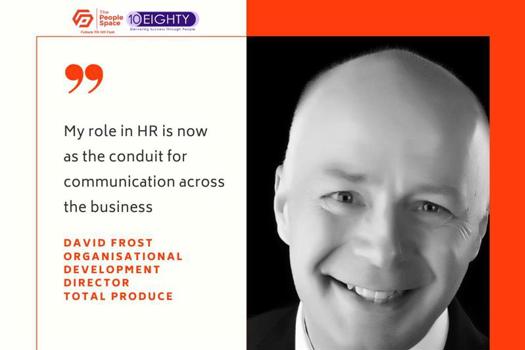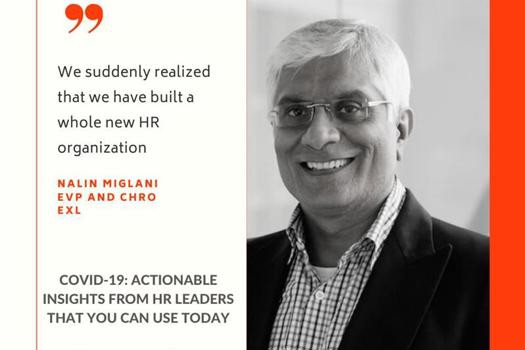Turn the clock back to January. Were you planning your summer vacation? Browsing the New Year sales on the high street? Signing up to job sites as 2020 was to be the year you finally ditched that job you hated and began a new career?
What a difference 90 days makes. Back then, it would have seemed unimaginable that you would soon be working from home, wearing face masks, cancelling all travel and asking your partner/flatmate/dog (delete as required) to cut your hair.
The COVID-19 pandemic has shown how quickly people and businesses can adapt to change. Supermarket floors marked out with yellow tape every two metres.
Organisations shifting thousands of employees to homeworking. HR departments getting to grips with furloughing and Zoom. Citizens in many countries accepting the greatest curbs on daily life since World War Two.
But now, with many countries still in lockdown, we are seeing momentum building for governments to reopen economies. While many of us would not expect to see protesters with guns entering statehouses as they have in the United States in the so-called American Patriot Rally, there are increasingly vocal calls for the easing of lockdowns from businesses, media and politicians.
However, with research from Ipsos Mori in the UK just last week showing more than 60% of would be uncomfortable about going to bars and restaurants, or using public transport; some 40% would be reluctant to go shopping or send their children back to school; and more than 30% are worrying about going to work or meeting friends, it is clear that managing the next phase of the pandemic is going to be challenging.
Given this, how can HR start to prepare for return-to-work across different sectors? What techniques in terms of communication, remote working, health and wellbeing and leadership are working for them in this new environment – and which are not?
How is HR dealing with the accelerated nature of work change, and how are employers pivoting their businesses? How is HR helping furloughed workers use their time productively and keep their skills sharp? How can you protect your employer brand? And what are HR leaders’ own coping mechanisms during this challenging time?
These are all questions I will be putting to some of the best HR leaders in their sectors over a series of focused, daily webcasts we are running at The People Space next week in conjunction with management consultancy 10Eighty (11-15 May, 16.00 BST/11.00 ET). These are designed to give attendees practical, actionable tips and insights directly from those ‘doing the job’.
In advance of the sessions, I spoke to the participants to get their views on the impact COVID-19 is having on them, their HR functions and their organisations.
For Eugenio Pirri, chief people and culture officer at luxury international hotel group Dorchester Collection, ensuring he and his executive team make the right decisions in a business that has gone from a multi-million revenue to zero in a few weeks has been challenging.
With nearly all the employee population furloughed in a sector that is likely to be one of the last to return to some ‘normality’, whatever that may mean going forward, engagement, managing mental health and maintaining some form of learning and development are top of mind. “The biggest role I have now is how to motivate the 80% of people that are at home at the moment,” he says.
Meanwhile, Nalin Miglani, EVP and CHRO of $1bn revenue New York-based operations management and analytics company EXL, says he suddenly realised that the crisis had resulted in the building of a whole new HR organisation. In fact, EXL has seen productivity increase over the period of the pandemic as it shifted some 25,000 people to remote working.
One key outcome of the crisis has been the widespread recognition of the value of those so called ‘low-skilled’ workers who have been so essential to enable society to function. Quite rightly we are visibly and volubly acknowledging NHS workers and, somewhat belatedly, carers, but there are also all those in retail, distribution and warehousing who enable us to continue to get food and other essentials.
As organisational development director at one of the world’s largest fresh produce providers, €6bn revenue Total Produce, David Frost tells me, his role has become one of “communication conduit”. With many of its employees still working, health and safety is of upmost importance.
At the other extreme, award-winning UK pub and microbrewery chain Brewhouse and Kitchen has shut its doors entirely. Hayley Connor, head of people and learning, says keeping talent staff motivated is front of her mind, together with developing ways to help people prepare and plan for continued uncertainty.
What is clear is this pandemic has accelerated change in business and HR. What will the post-pandemic economy look like? Yes, many are calling for a return to ‘normal’ as quickly as possible. But I would like to think we won’t just go back to the ‘old ways of doing things’.
We have an opportunity to use this situation for long-term transformation. Just as it is unlikely consumers will ditch new purchase behaviours (think online shopping and streaming), so employees are unlikely to want to go back to these old ways of working. And as we know, those companies that capitalise on these new trends faster than their competition will be the winners.
Michael Moran, CEO and founder of 10Eighty who I am interviewing on Friday 15 May, believes COVID-19 has unleashed the power of people. “If we try to go back to the old ways of working we’ll face a people revolution,” he says. Vive Le Revolution!
Siân Harrington is co-founder and editorial director of The People Space. To see more and register for the webcast series please click here.









